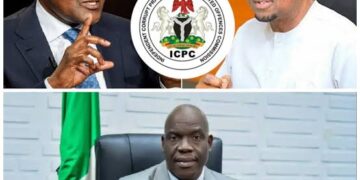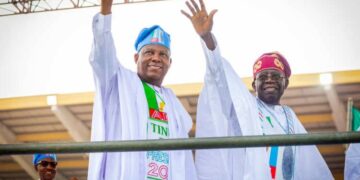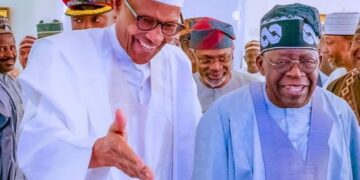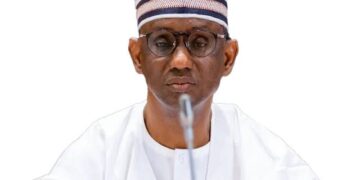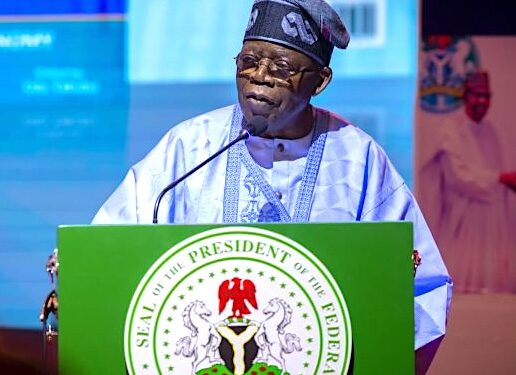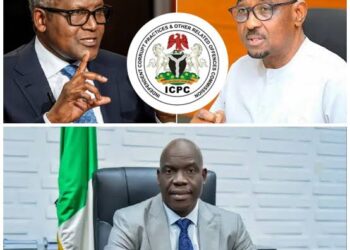By Dare Adelekan
Nigeria today is a theatre of pain. Citizens are still gasping for air under the crushing weight of President Bola Ahmed Tinubu’s subsidy removal, yet the government has returned with another sledgehammer: a 5% petroleum consumption tax. This is not just another fiscal policy; it is proof of a government that has lost touch with the very people it swore to serve.
From Hope to Hardship
Tinubu came into office with a bold proclamation — “fuel subsidy is gone.” That single statement on May 29, 2023, turned the economy on its head. Overnight, transport fares doubled, food prices tripled, and the cost of living spiraled beyond imagination. For millions of Nigerians, that announcement was not reform; it was disaster.
The government promised palliatives, but Nigerians saw little beyond the drama of politicians distributing bags of rice for the cameras. Billions of naira meant to cushion hardship disappeared into the usual swamp of corruption and inefficiency. One year later, ordinary families still bear the scars: parents skip meals so children can eat, workers trek long distances to save transport fare, and businesses groan under the cost of diesel.
Another Burden on Broken Backs
It is against this backdrop that Tinubu’s government has now introduced a 5% petroleum consumption tax. The timing could not be worse. Inflation is at record highs. The naira has collapsed. Insecurity has made farming impossible in many regions. Nigerians are already fighting for survival, yet the government has decided to tax survival itself.
Fuel in Nigeria is not a luxury commodity; it is life itself. It powers keke napep, okada, and danfo buses that move workers daily. It fuels the generators that provide electricity in a country where the national grid is more absent than present. It runs the grinding machines of market women, the irrigation pumps of farmers, the cold rooms of fish sellers, and the small factories of entrepreneurs. A tax on fuel is a tax on everything: food, education, housing, healthcare, and transportation.
The outcome is predictable: more hunger, more job losses, and more despair.
Ministers Without Empathy
What makes this worse is the arrogance of the economic managers driving these policies. Wale Edun, the Finance Minister, speaks of “increasing government revenue” as though Nigerians are digits in his spreadsheets. He forgets that behind every litre of taxed fuel is a family already crushed by poverty.
Mohammed Idris, Minister of Information, calls these measures “bold reforms,” but Nigerians know them as bold wickedness. What is bold about taxing hunger? What is reformative about squeezing citizens until they can no longer breathe?
Meanwhile, the President’s men continue to live in obscene comfort. Lawmakers cruise in SUVs worth ₦160 million each, while hospitals lack basic drugs. Ministers fly private jets, while market women hawk goods under scorching sun. Governors collect billions in security votes, while farmers are killed in their fields.
This is not leadership. It is mockery.
The Arrogance of Power
The tragedy of Tinubu’s government is not only its anti-people policies but its tone-deafness. There is no empathy, no recognition of the daily struggles of ordinary Nigerians. The elite speak of “sacrifice” while living in luxury. They call for “patience” while spending billions on frivolities.
Nigerians are not blind. They see the hypocrisy. They feel the injustice. And every new tax, every new hardship, widens the gulf between the rulers and the ruled.
The Human Cost of Policy Failure
Behind the statistics lies real human anguish. The taxi driver in Lagos who now spends half his earnings on fuel. The teacher in Ibadan who can no longer afford school supplies for her children. The rice farmer in Benue who abandons his fields because insecurity and high diesel costs make farming impossible. The young graduate in Kano who dreams only of leaving Nigeria because his country offers nothing but pain.
This is the true cost of the 5% petroleum consumption tax — not just numbers, but shattered lives.
Leadership Without Compassion
Every leader is judged not by the size of his reforms but by the depth of his compassion. Tinubu’s government has so far failed this test. Instead of walking with the people, it has chosen to walk over them. Instead of easing burdens, it has multiplied them. Instead of offering hope, it has deepened despair.
The truth is simple: reform without empathy is cruelty.
A Government at a Crossroads
It is not too late for Tinubu to change course. But change requires humility — the humility to admit that mistakes have been made, that Nigerians cannot be taxed into prosperity, and that true reform must put the people first. It requires discipline to cut government waste before squeezing citizens further. It requires courage to fight corruption, not shield allies.
If Tinubu continues on this path of arrogance and cruelty, history will record him not as the reformer who saved Nigeria, but as the president who broke his people.
Conclusion
Nigerians are still in pain from the subsidy removal, and now they face fresh agony from the 5% petroleum consumption tax. This is governance without a human face, leadership without empathy, reform without compassion.
President Tinubu must be reminded: Nigerians are not beasts of burden. They are citizens deserving of dignity, compassion, and relief. Another tax on fuel is not the solution to Nigeria’s problems — it is an escalation of its tragedies.
The people are watching. History is recording. And posterity will judge.

